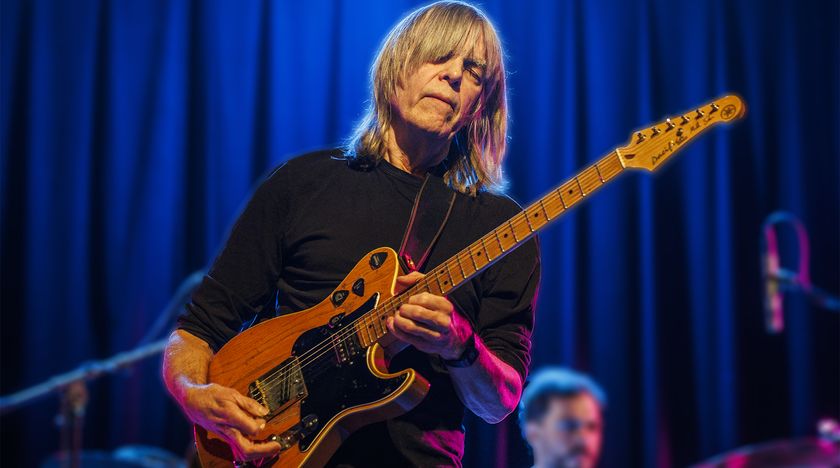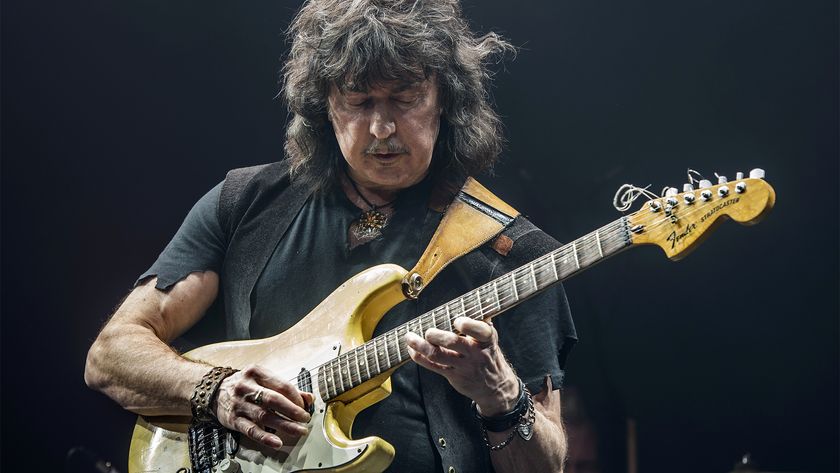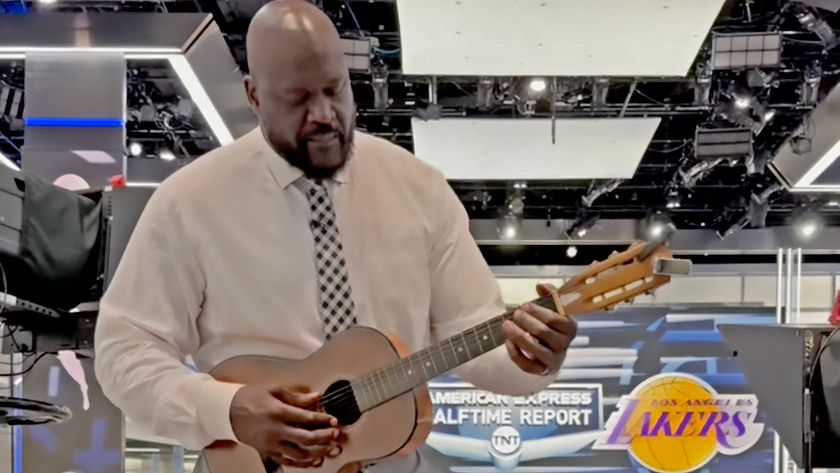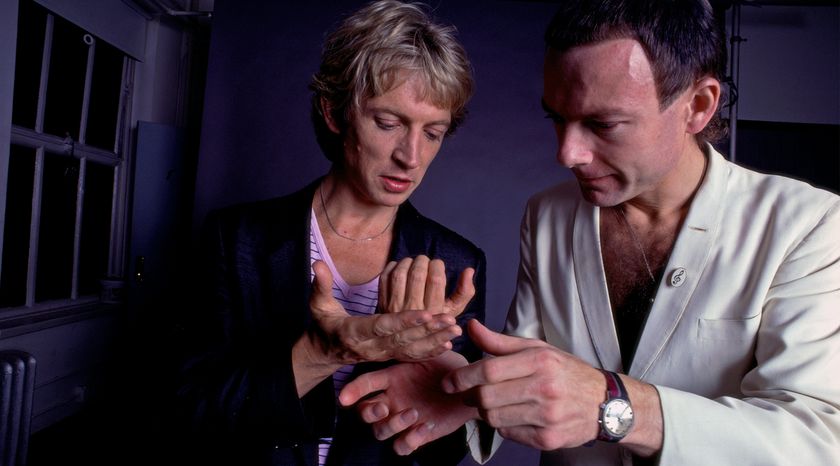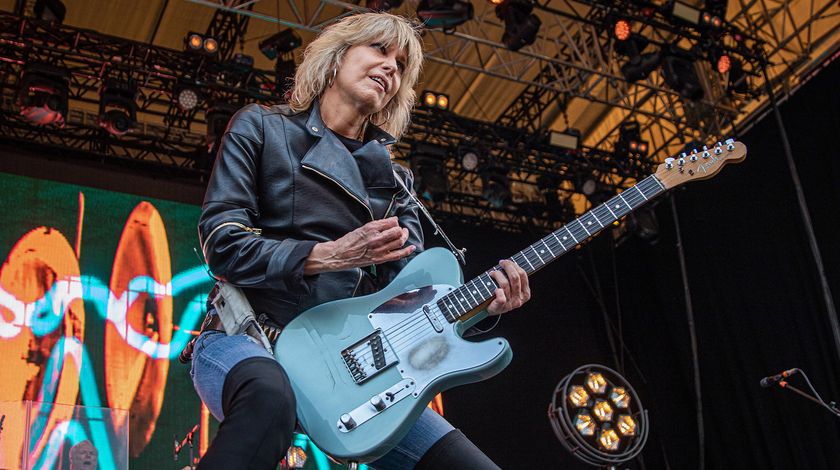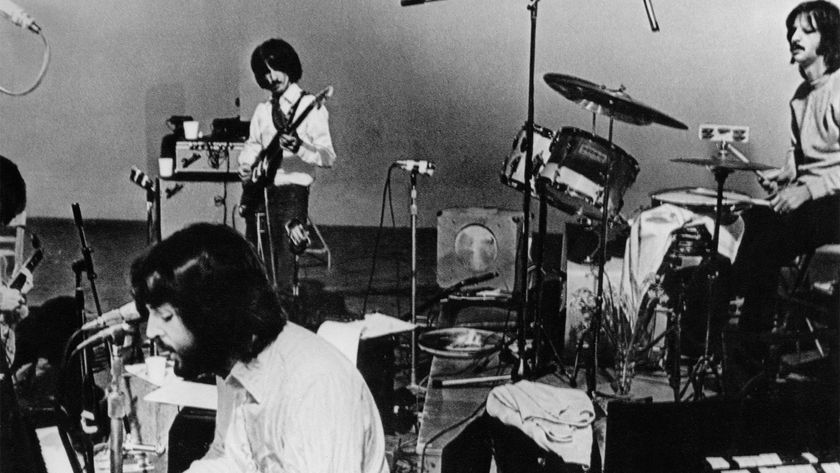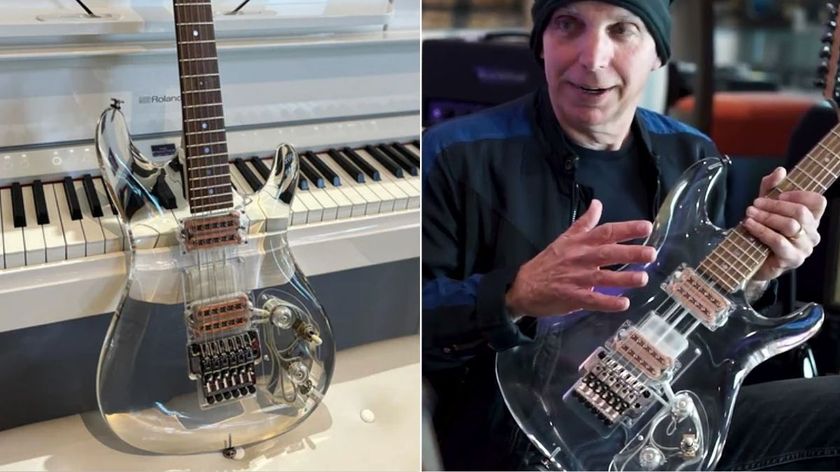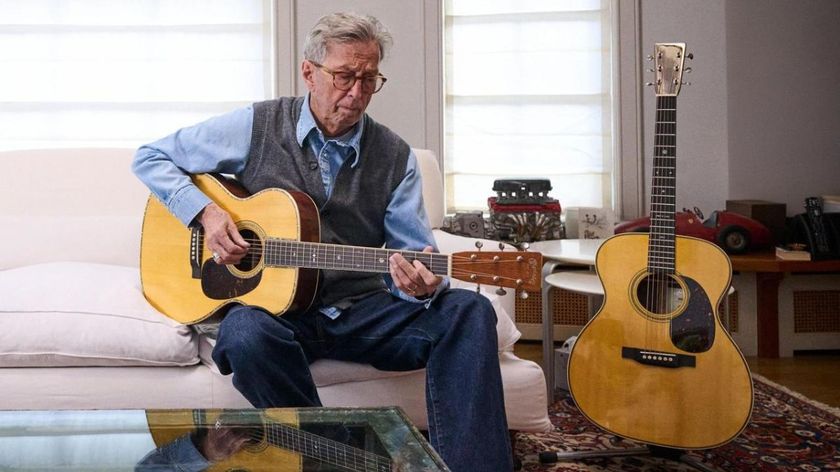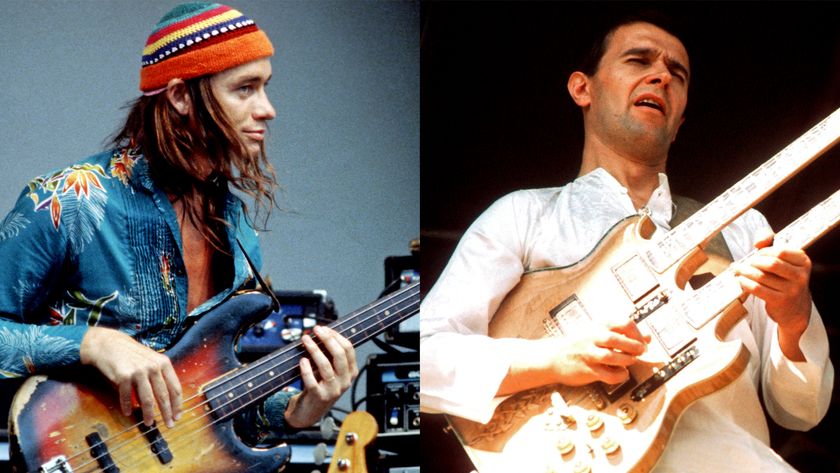“I feel like a fraud. Because people don't know — but they're gonna find out one day.” Judas Priest’s Richie Faulkner opens up about struggling to play guitar since his emergency heart surgery
The 45-year-old guitarist shared his story with Premier Guitar’s John Bohlinger in a deep interview that covers plenty of ground

Richie Faulkner says he once felt an automatic connection between his brain and hands when playing guitar.
“I used to think something and it would come out,” the Judas Priest guitarist says.
But something changed following a near-death onstage emergency he suffered in 2021.
“Now I'm up there struggling to play, like, a rhythm pattern," he says. "I can't do it.”
It’s been a difficult climb back for Faulkner, who suffered an aortic aneurysm onstage in 2021, shortly after Priest returned to touring following COVID lockdowns.
The 45-year-old guitarist, who’s known for playing Gibson and Epiphone Flying V electric guitars, replaced Judas Priest guitarist and co-founder K.K. Downing in 2011. Since then he’s earned the love and respect of the group’s fans and demonstrated his facility with handling the group’s classic songs along with their newest material.
But as he tells Premier Guitar’s John Bohlinger in a new video interview, the road back to health hasn't been easy. After attempting to hide his struggles from fans and the guitar gear companies he represents, Faulkner says he’s decided to share his experiences in the hope that others might benefit.
Get The Pick Newsletter
All the latest guitar news, interviews, lessons, reviews, deals and more, direct to your inbox!
As he explains, the early months of 2021 were happy ones for Priest, who were eager to get back on the road after COVID forced them to cancel their 50th anniversary "50 Heavy Metal Years Tour." A U.S. tour was booked to begin on September 8, in Reading, Pennsylvania.
“We’re back. It's all happening,” Faulkner tells Bohlinger. “Flights are booked, it’s going ahead. Nothing's stopping us.”
Nothing that is until three weeks into the tour when the band appeared at the Louder Than Life festival in Kentucky. While performing “Painkiller,” Faulkner felt severe pain in his chest.
“I thought it was a heart attack,” he says. “There's pain in the chest. What else could it be, right?”

In fact he suffered an aortic dissection, a tear in the lining of the main artery that extends from just below the throat to the pelvis and carries blood from the heart. “The whole thing ruptured from from top to bottom,” he says.
Faulkner carried on to finish his guitar solo before the set concluded, but in fact every minute counted if he was going to survive.
Fortunately, one of the best hospitals in the country for this life-or-death occurrence was just a few miles away. Surgeons at Rudd Heart & Lung Center in Louisville worked on Faulkner for 10 and a half hours.
“Five parts of my chest were replaced with mechanical components. I’m literally made of metal now,” Faulkner joked in October 2021, following his life-saving surgery.
But as the guitarist now tells Bohlinger, he’s suffered with after effects that include several transient ischemic attacks, or TIAs. Those led to a stroke that's impacted his strumming. The resulting effects became clear once Judas Priest returned to the road following a roughly five-month layoff while Faulkner recuperated.
“We went back out on the road, and I thought everything was fine,” he says, “but there was something in my right hand.” After attempting to remedy the issue by removing his rings and even changing his picks, Faulkner concluded something had happened to his right hand. Tests confirmed the stroke.
“They found some damage on the left side of the brain., which affects the right side. And obviously,” he says of his right hand, “that's our engine room.”
As the problems became more apparent to him, Faulkner struggled to hide his infirmity from the public.
“There's a lot of fear from my side about being found out,” he explains. “I feel like I've got a lot of trust from the fan base, from the guitar companies, the string companies. They put their bets on you, and I don't want anyone to know, because as soon as they know, they're going to lose faith. They're gonna bail out. I'm not going to be appealing to them anymore, or I'm going to let the fans down.
“And I felt that in a band like Priest, it's got to be world-class stuff. And I don't feel world class. I feel like a fraud. Because they don't know — people don't know, maybe, but they're gonna find out one day. Someone's going to find out, or someone's going to say, ‘He's not playing it the same way.’”
There's a lot of fear from my side about being found out. I feel like I've got a lot of trust from the fan base, from the guitar companies, the string companies."
— Richie Faulkner
Ultimately, Faulkner says, he decided to open up about his struggles in the hope that those who deal with performance issues will feel better knowing even the pros go through difficult times.
“I know there's a lot of people out there who play, they sing, whatever they do, and they feel like they're not good enough, or that we don't have these issues as well,” he says. “And I want them to know that they're not alone. All of us, probably more people than we're aware of, struggle with something, somewhere. So you're not alone.”
Faulkner’s inspiring story is just one of many great moments in Bohlinger’s interview. Elsewhere in the clip, the guitarist tells how a Tokyo guitar store nearly sold him Steve Lukather’s 1960 Les Paul Standard for much less than it was worth after the shop incorrectly calculated the yen-to-dollars exchange rate.
Judas Priest are currently on tour behind their latest release, 2024’s Invincible Shield. The album made the top metal album lists of many publications, including Metal Hammer’s Top 50 Albums of 2024, where it ranked number two.
Christopher Scapelliti is editor-in-chief of GuitarPlayer.com and the former editor of Guitar Player, the world’s longest-running guitar magazine, founded in 1967. In his extensive career, he has authored in-depth interviews with such guitarists as Pete Townshend, Slash, Billy Corgan, Jack White, Elvis Costello and Todd Rundgren, and audio professionals including Beatles engineers Geoff Emerick and Ken Scott. He is the co-author of Guitar Aficionado: The Collections: The Most Famous, Rare, and Valuable Guitars in the World, a founding editor of Guitar Aficionado magazine, and a former editor with Guitar World, Guitar for the Practicing Musician and Maximum Guitar. Apart from guitars, he maintains a collection of more than 30 vintage analog synthesizers.
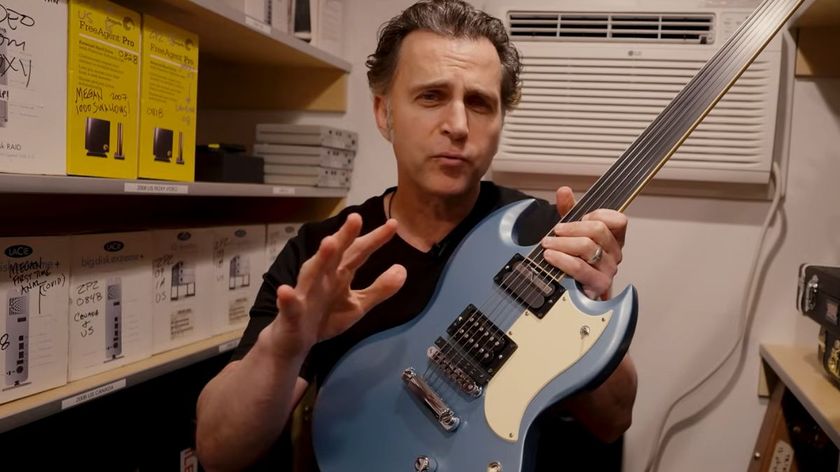
"It's one of the coolest guitars that I own. And look — it’s fretless!" Dweezil Zappa revels in the quirks and sonic benefits of his one-of-a-kind Gibson "Roxy" SG
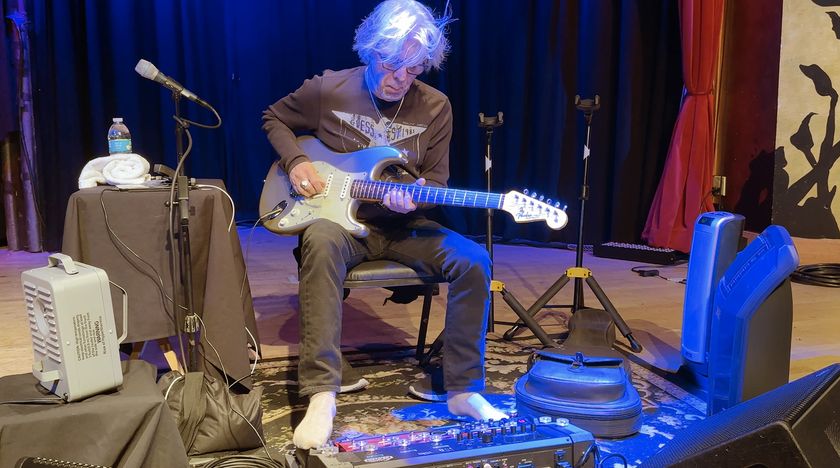
“The looping show is high anxiety for me. The only time I get to relax is when I’m soloing.” Johnny A. walks us through his song-based live looping strategy as he demonstrates his guitar rig

